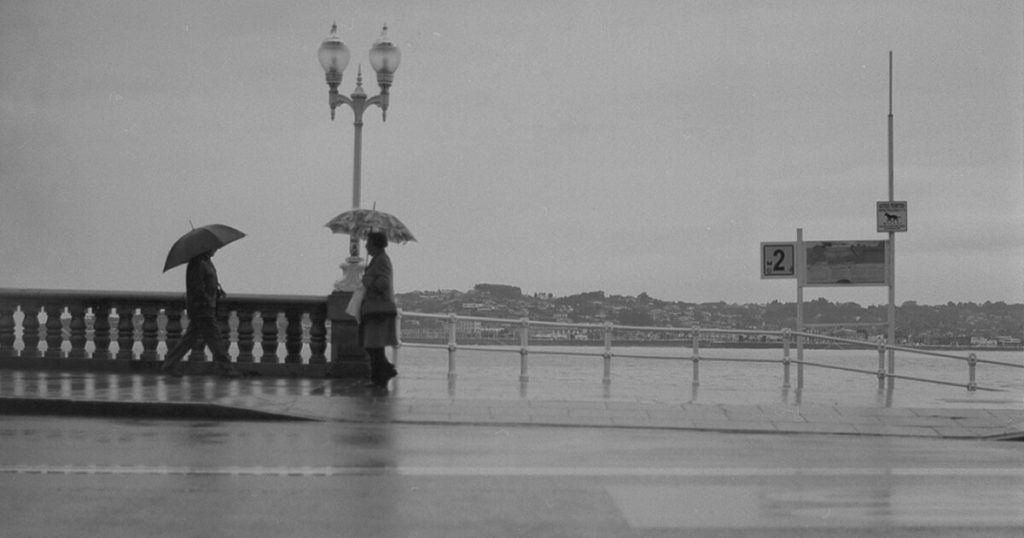
Rain in Asturias typically comes from the west, but frigid air blows in from the northeast, and so on leaving the house for a run one cold and windy January morning, wondering if I were in for rain, I eyed the trees to see which way they were blowing. Both ways, of course, pushed until bent almost double and then rebounding until they flopped over nearly as far in the other direction. All along the lane, trees twisted and bent and knocked every which way, as if dancing, but each to its own music, so that it was hard to tell wind action from tree reaction. So far though, no rain. I headed out.
I was immediately glad I had. The wild wind was a thrill, and the cold was bracing. I ran west, and by the time I was on the coastal path overlooking the ocean I was in a fine mood. “Hello! Good day!” I greeted a group of orange-clad workers who stood on the path, hunched against the wind. They’d left their trimmers on the hillside above while they took a break from their work of gathering debris and cutting back the gorse and bramble that so want to lay hold of the path. The workers opened ranks as they returned my greeting, and I passed through them. Nobody else was out in this weather.
Fifteen minutes farther on I reached the hotel and bar on the promontory. Right there, where the path swerves north, a blast of rain on an arctic wind knocked into me, and quickly I reformulated my plan: turn aside, head for the highway, and hurry home!
I had rain from the northeast in my face the whole way home. My cheeks were stinging, my gloved hands wet. Had it come from where rain usually does, I’d have had it on my back instead, and the wind would have helped me home, not tried to stop me. What a wallop the wind and rain gave! All along the way, the trees lunged and waved frantically at me. I passed the streetlight on the corner and turned into the tree-lined lane to the house. As I ran under the flailing branches, I remembered looking out from my house onto this lane, years earlier, in the midst of another fierce windstorm. My boys were young children then, and as usual I had been home alone with them. It was winter then too, the wind whistling in the night, and the wildly moving branches along the lane alternately obscured and revealed the streetlight at the end. It seemed, looking from the house, that someone was flashing a light as a signal, a distress call. Peering from the window into the dark, I felt almost compelled to hurry out into the lane to answer the call. It was just the wind, I realized, and the thrashing trees and the streetlight. Still, the feeling lingered that someone was out there, in need of aid but warning not to follow. The walls of the house hardly seemed protection enough. Nothing did.
The wind is as wild still as back in the early days, but I feel less exposed. It’s not that now I am beyond all danger, just that the danger seems less dire. I’m not on the edge of my seat, wondering which way to turn, which way to run. Of course not—the path is set. Besides, as I thought that morning, the house appearing ahead, my run almost over, I’m in the homestretch.

